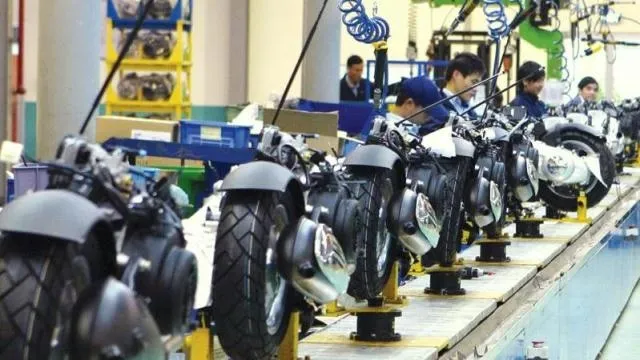Fitch: Vietnam’s economy on positive growth momentum

The assessment was made by experts from the prestige rating agency Fitch Ratings at the Fitch on Vietnam forum which took place in Hanoi on June 8.
Sagarika Chandra, Associate Director and Primary Sovereign Analyst for Fitch Ratings Vietnam, said that, in May 2018, Fitch upgraded Vietnam’s long-term foreign-currency issuer default rating (IDR) to “BB from “BB-”, as the countries’ foreign exchange reserves were increased combined with strong economic growth.
Compared to other emerging countries, as well as other BB credit-rated countries, Vietnam has a high growth rate, she said, adding that its GDP growth was over 6% in 2017 and is expected to reach 6.7% in 2018 and beyond. This is one of the important factors in Fitch raising Vietnam's credit rating, Chandra stressed.
According to the expert, the key driver for the Fitch movement is from Vietnam maintaining its macroeconomic stability, its resilience to stronger external risks and meeting certain financial criteria. The Government of Vietnam promulgated a flexible exchange rate regime at the beginning of 2016 and pledged to limit the level of national debt and restructure State-owned enterprises. Among these factors, sustainable macroeconomic performance and increasing foreign exchange reserves are the two most important factors in Fitch's rating.
According to Fitch’s forecast, Vietnam's economy may reach 6.7% growth in 2018, becoming one of the fastest growing economies in Asia-Pacific and the fastest among the BB credit rating nations.

At the forum, experts also assessed that the Vietnamese economy is converging on many strengths, combining both domestic and foreign factors, which are related to investment flows, labour and productivity in the agricultural sector, and processing and manufacturing, in order to create a sustainable structure.
Can Van Luc, Chief Economist at the Bank for Investment and Development of Vietnam, said that the Vietnamese economy is positively recognised by international organisations. The World Bank has also raised its outlook for Vietnam’s economic growth to 6.8% from the previous forecast of 6.5%.
Luc added that an additional factor that makes the Vietnamese economy more attractive is the rapid growth of the private sector and consumption, at about 10% in the past year, which contributes significantly to the GDP. Besides the foreign direct investment, private investment is also growing strongly, Luc said.
Sebastian Eckardt, World Bank's Lead Economist for Vietnam, pointed out several risks and challenges for Vietnam’s economy in the future, including that its highly open economy is likely to be exposed to external factors, such as trade wars, high oil prices and geopolitical instability. In addition, tightened monetary policies by the central banks would also have a great impact on the world economy and, of course, Vietnam is not out of the circle of influence, he affirmed.





